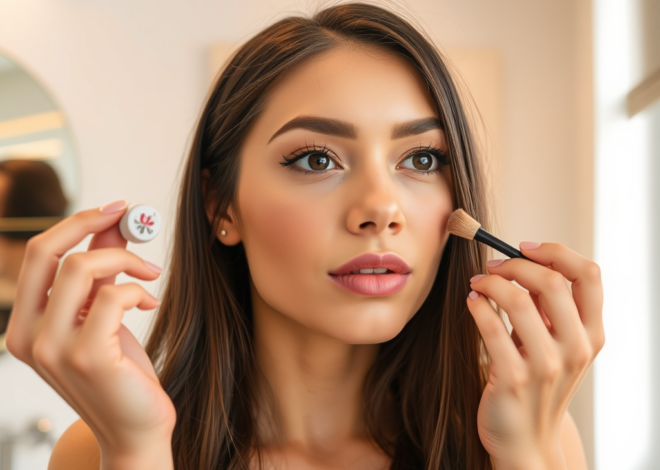
Common Ingredients That Cause Skin Inflammation – How to Protect Sensitive Skin
When it comes to protecting sensitive skin, understanding which ingredients can cause inflammation is crucial. Various skincare ingredients can trigger irritation, redness, and discomfort for sensitive skin types. This article delves into the most common culprits, helping you make informed choices to keep your skin healthy and soothed.
Understanding Sensitive Skin

Sensitive skin is characterized by an overreactive response to various stimuli, including cosmetics, weather conditions, and environmental factors. People with sensitive skin often experience redness, itching, burning, and dryness. To manage and protect sensitive skin, it is vital to be aware of potential irritants and avoid them in your skincare routine. This section will help you understand the basics of sensitive skin and its triggers.
Common Irritants in Skincare Products
Various ingredients found in skincare products can cause inflammation and irritation for sensitive skin. The most common irritants include fragrances, alcohols, sulfates, and certain preservatives. These ingredients can strip the skin of its natural oils, disrupt the skin barrier, and lead to sensitivity and inflammation. When shopping for skincare products, always check the ingredient list and avoid products containing these common irritants.
Fragrances – A Major Culprit
Fragrances are one of the leading causes of skin inflammation and sensitivity. Many skincare and cosmetic products contain synthetic fragrances to make them more appealing. However, these fragrances can be highly irritating, especially for those with sensitive skin. To protect your skin, opt for fragrance-free or naturally scented products. Always perform a patch test before using any new product to ensure it doesn’t cause a reaction.
The Impact of Alcohols on Sensitive Skin
Alcohols are commonly used in skincare products for their quick-drying properties and ability to enhance product absorption. However, certain alcohols, such as denatured alcohol, can be extremely drying and irritating for sensitive skin. They can disrupt the skin’s natural barrier function, leading to redness, dryness, and inflammation. Look for alcohol-free or products containing fatty alcohols, like cetyl alcohol, which are less likely to cause a reaction.
Preservatives to Avoid
Preservatives are essential in skincare products to prevent bacterial growth and extend shelf life. Unfortunately, some preservatives, such as parabens, formaldehyde releasers, and methylisothiazolinone, can cause skin irritation and allergic reactions. To protect your sensitive skin, choose products with gentler preservatives or those labeled as “”preservative-free.”” Be vigilant about checking ingredient labels to avoid these harmful substances.
Sulfates – Stripping Away Natural Oils
Sulfates, such as sodium lauryl sulfate (SLS) and sodium laureth sulfate (SLES), are common cleansing agents found in many skincare and haircare products. They are effective at removing dirt and oil but can be too harsh for sensitive skin. Sulfates strip away the skin’s natural oils, leading to dryness, irritation, and inflammation. Opt for sulfate-free cleansers and shampoos to maintain your skin’s moisture balance and protect its barrier function.
Conclusion
Protecting sensitive skin requires a mindful approach to selecting skincare products. By understanding and avoiding common irritants like fragrances, certain alcohols, preservatives, and sulfates, you can minimize inflammation and maintain healthy, balanced skin. Always opt for products designed for sensitive skin and conduct patch tests to ensure compatibility. Your skin will thank you for taking these extra steps towards its protection.
FAQs
1. What are the signs of sensitive skin?
Sensitive skin often exhibits signs such as redness, itching, burning sensations, and dryness. It may also react adversely to certain skincare products or environmental factors.
2. Can natural products cause skin inflammation?
Yes, even natural products can cause skin inflammation if they contain essential oils or other potent ingredients that your skin might be sensitive to. Always perform a patch test before using natural products.
3. Are ‘hypoallergenic’ products safe for sensitive skin?
While ‘hypoallergenic’ products are designed to minimize the risk of allergic reactions, they can still cause irritation in some individuals. It’s important to check the ingredient list and conduct a patch test.
4. How can I test if a new skincare product is safe for my sensitive skin?
Perform a patch test by applying a small amount of the product to a discreet area of your skin, such as behind your ear or on your inner forearm. Wait 24-48 hours to see if any irritation occurs before using it on your face.
5. Can dietary factors affect skin sensitivity?
Yes, certain foods and beverages can trigger skin sensitivity and inflammation. Common culprits include spicy foods, alcohol, and processed foods. A balanced diet rich in fruits, vegetables, and omega-3 fatty acids can help improve skin health.


